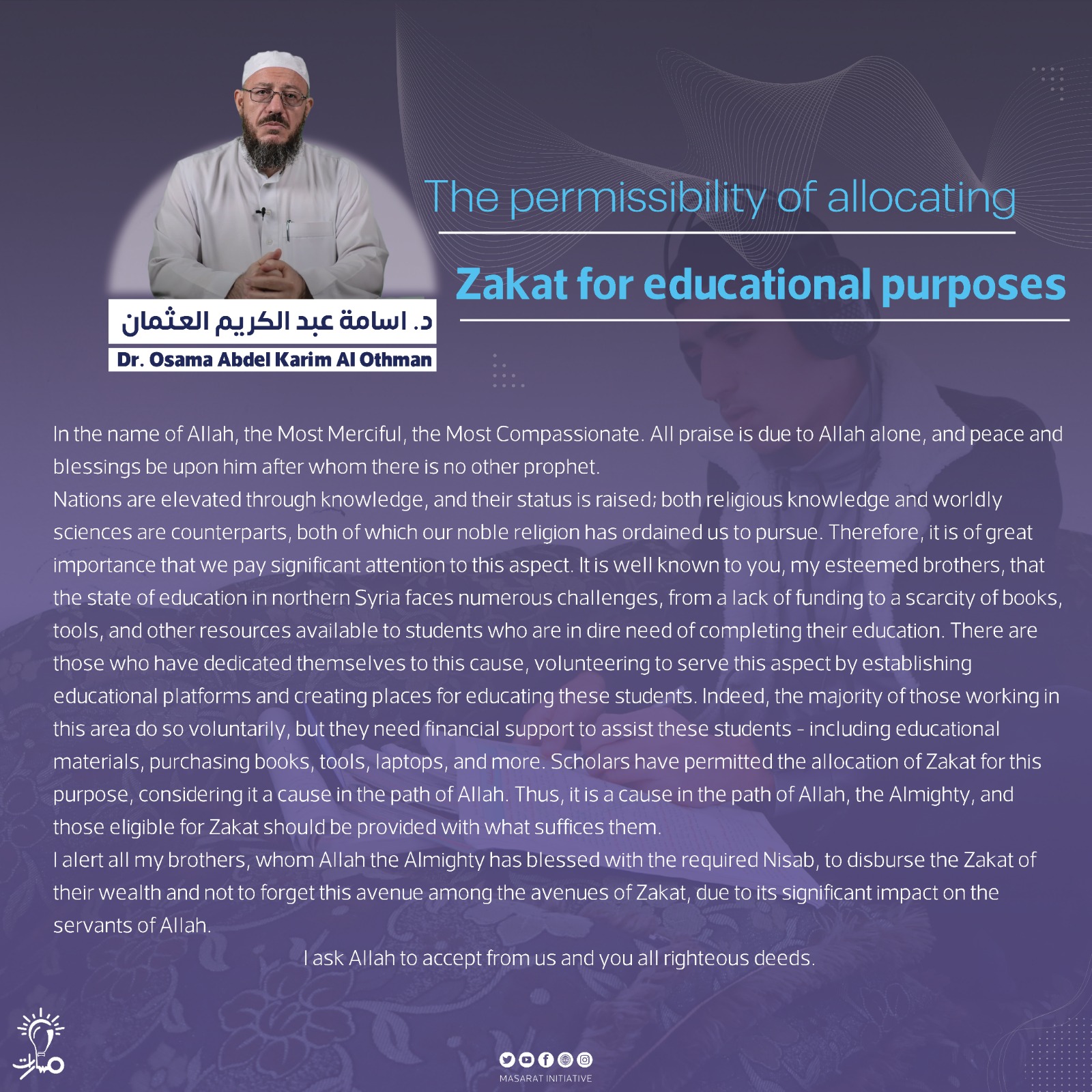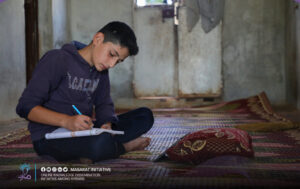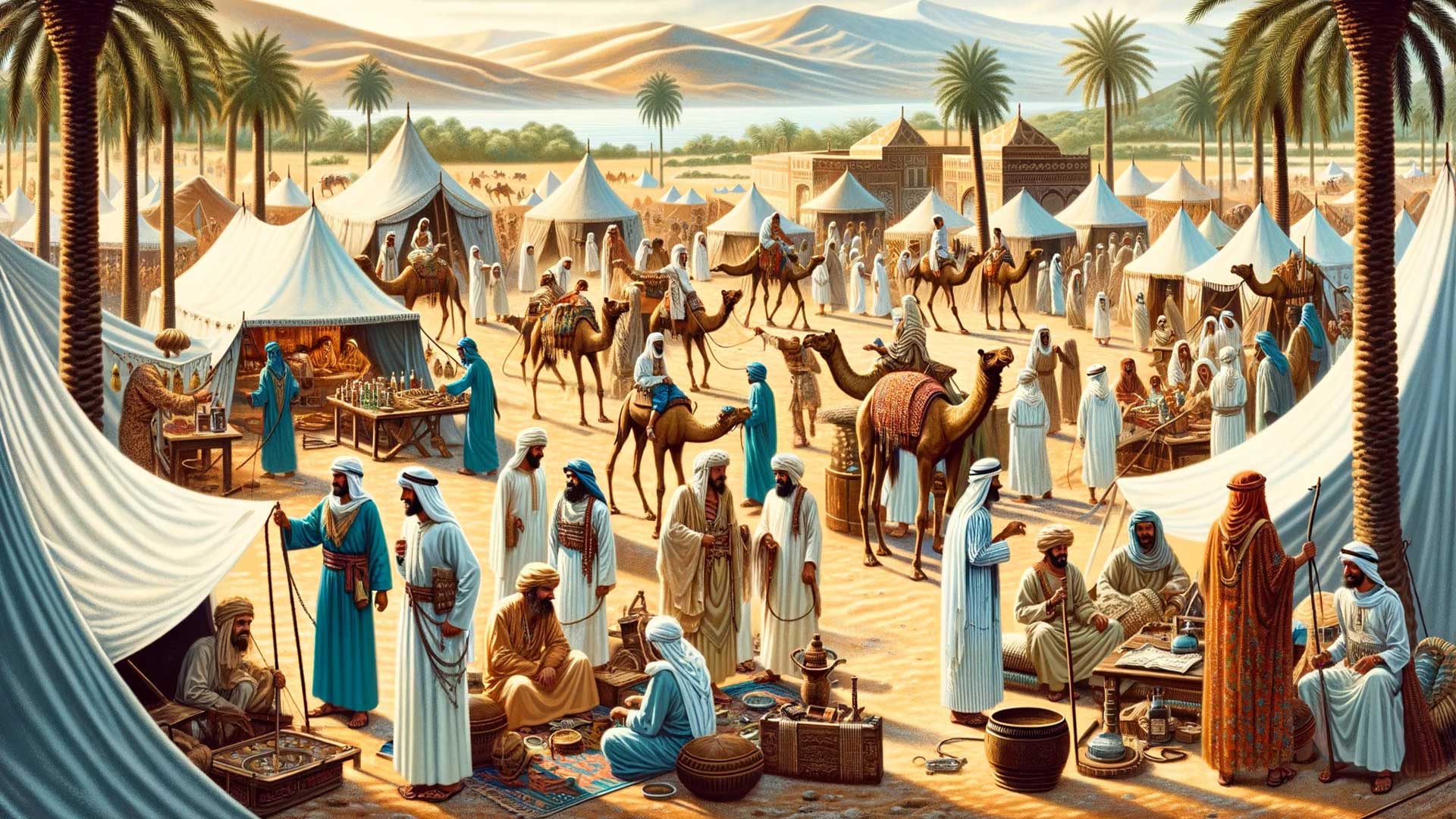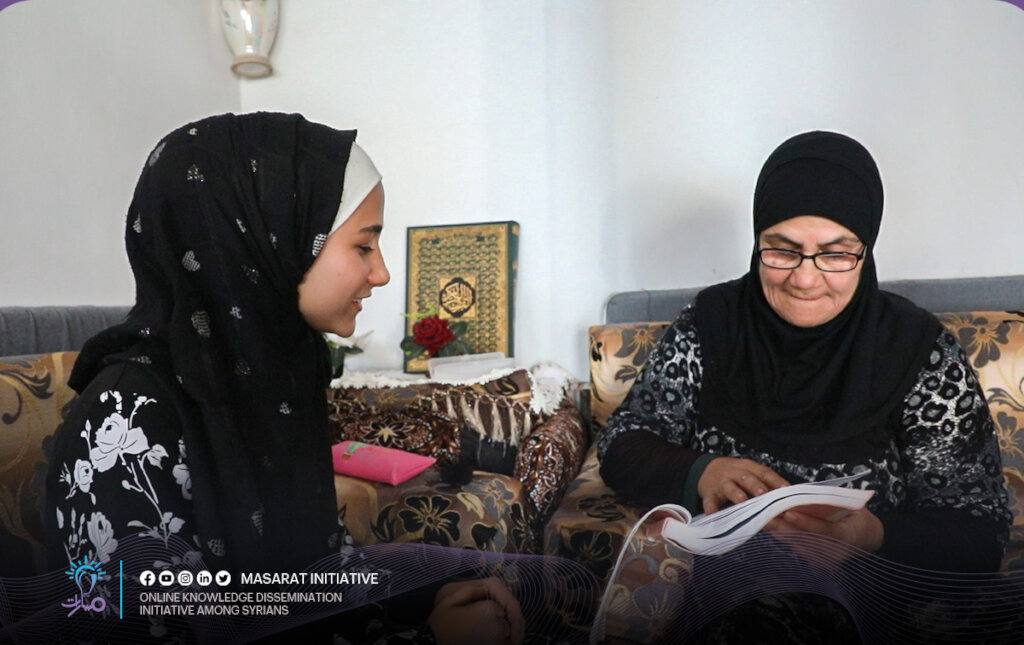The Prophet Muhammad ﷺ blessed the guardian and sponsor of an orphan with Paradise, saying: (I and the sponsor of an orphan will be in Paradise like these two, and he pointed with his two fingers, meaning: the index and middle finger) [Sahih Al-Tirmidhi – 1918]. Our noble Prophet advised about orphans in more than ten authenticated hadiths, due to the esteemed position granted to those who sponsor them. Conversely, he warned against consuming their rights and its consequences.
The importance of this topic leads us to focus on it in today’s article, where we discuss the matter of orphan care in Islam in detail, covering all its aspects to enable a comprehensive understanding.
Information about Orphan Care in Islam
Islam gives the “orphan” a special and high status, honoring them, commanding kindness towards them, and Allah Almighty promises great reward in this life and the hereafter for their caretakers. It is one of the gates of goodness through which a servant attains happiness in this world and honor in the hereafter.
Allah Almighty says regarding the sponsorship and care of orphans: (And they ask you about orphans. Say, “Improvement for them is best. And if you mix your affairs with theirs, they are your brothers”) [Al-Baqarah: 220].
What is meant by orphan care?
There might be no need to explain the term “orphan care,” but allow us to share it as a reminder and enlightenment about what might have been overlooked.
The concept of “orphan care” refers to all actions connected to being kind to them, preserving their rights and wealth, and raising them in the religion of Allah.
In this context, it’s essential to note that this care isn’t limited to providing food and drink. The term kindness encompasses a broader indication on the level of both action and speech. Islam prohibits oppressing or humiliating them or transgressing against them and their rights in any form. It encourages raising them on values and good morals, compensating them adequately for the love and affection lost due to their father’s death, properly guiding them, correcting their behavior towards righteousness, and deterring them from error and deviation.
The Virtue of Orphan Care in Islam
Allah Almighty honored the caretaker of the orphan, promising them provision and forgiveness. This is affirmed in the words of our noble Prophet, who promised those who sponsor an orphan with numerous virtues and a high status, including “companionship with the Prophet in Paradise, great reward in this world, purifying and sanctifying wealth, and increased provision.”
Is Orphan Care and Kindness Towards Them Obligatory in Islam?
Just as Islam encourages zakat, prayer, and Islamic rituals that lead one to goodness and Paradise, it also specifically honors the “orphan,” their guardian, and caregiver with great virtues.
Islam commands kindness towards them, prohibits consuming their rights, and warns against it; for consuming an orphan’s wealth is one of the seven destructive sins that the Prophet Muhammad ﷺ advised to avoid, and Allah Almighty forbade it in His words: (Test the orphans until they reach the age of marriage; if you perceive in them sound judgment, release their property to them).
Verses about Orphans and the Virtue of Their Care from the Quran
What are the contexts in which the issue of orphan care and sponsorship in Islam and in Allah’s Book, our reference as Muslims, are mentioned, reminding us that doing so brings us closer to the pleasure of Allah Almighty and His Messenger?
The Noble Quran mentions the “orphan” in thirteen places, promising the caretaker great reward in this world and the hereafter. Sponsoring an orphan is among the qualities of the righteous and the God-fearing. Allah Almighty says: (Righteousness is not turning your faces towards the east or the west. Righteous are those who believe in Allah, the Last Day, the angels, the Book, and the prophets; and give their wealth, in spite of love for it, to relatives, orphans, the needy) [Al-Baqarah 177].
Allah Almighty in the Quran denounces those who mistreat the orphan and diminish their dignity, linking this to religion and emphasizing the importance of caring for them and preserving their rights. He says: (Have you seen the one who denies the Judgment? That is the one who repulses the orphan).
The Quran also mentions the “orphan” in the context of discussing the pillars of faith, as a sign of the importance of being kind to them and treating them well. Allah Almighty says: (Righteousness is not turning your faces towards the east or the west. Righteous are those who believe in Allah, the Last Day, the angels, the Book, and the prophets; and give their wealth, in spite of love for it, to relatives, orphans, the needy, the traveler, those who ask [for help], and to free slaves).
Our Lord emphasizes the importance of kindness and mercy towards the orphan. He says: (And [recall] when We took the covenant from the Children of Israel, [enjoining upon them], “Do not worship except Allah; and to parents do good and to relatives, orphans, and the needy). He also emphasized the need for proper upbringing in society and mentioned our noble Prophet in one of the verses, saying: (Did He not find you an orphan and give [you] refuge? And He found you lost and guided [you], And He found you poor and made [you] self-sufficient).
The Quran alerts to the importance of preserving the rights and wealth of the orphan, as stated in its verses: (And give to the orphans their properties and do not substitute the defective [of your own] for the good [of theirs]. And do not consume their properties into your own. Indeed, that is ever a great sin). This verse, which relates to preserving the wealth of orphans and then handing it over to them upon maturity, is linked to the preceding verses in Surah An-Nisa, which command the obligation to fear Allah Almighty.

Prophetic Hadiths about the Virtue of Orphan Care
Narrated from the Prophet Muhammad, many authentic hadiths specifically mention the “orphan” and their caregiver. Among the most well-known hadiths is the saying of our Prophet regarding the caretaker of an orphan: (I and the sponsor of an orphan will be in Paradise like these two, and he pointed with his two fingers, meaning: the index and middle finger) [Sahih Al-Tirmidhi – 1918].
Hafiz Ibn Hajar in explaining this hadith said, “Ibn Battal said: It is a duty for one who hears this hadith to act upon it to be a companion of the Prophet in Paradise, and there is no better status in the hereafter than this.” Then Hafiz Ibn Hajar said: “It indicates that the difference in status between the Prophet and the caretaker of an orphan is minimal, like the difference between the index and middle finger.”
The Prophet – as we mentioned earlier – warned of the consequences of consuming the wealth of the orphan, when he said: “Avoid the seven destructive sins.” They asked: “O Messenger of Allah, what are they?” He said: “Associating partners with Allah, magic, killing a soul which Allah has forbidden except with right, consuming usury, consuming the wealth of an orphan, fleeing from the battlefield, and slandering chaste, unsuspecting, believing women.” Narrated by Al-Bukhari.
Among the hadiths of the Prophet Muhammad about orphans, Abu Huraira reported that the Prophet said: “The one who looks after a widow or a poor person is like a Mujahid (fighter) who fights for Allah’s cause, or like him who performs prayers all the night and fasts all the day.” Narrated by Al-Bukhari and Muslim.
Abu Darda reported: A man came to the Prophet complaining of hardness of his heart, so the Prophet said: “Do you wish that your heart becomes soft and that you fulfill your needs? Be merciful to the orphan, pat his head, and feed him from your food. Your heart will become soft, and your needs will be fulfilled.”
Abu Umamah reported: The Prophet said, “Whoever caresses the head of an orphan (in affection), solely for the sake of Allah, a good deed will be written to his account for every hair over which his hand passed; and whoever treats an orphan girl or boy with kindness and good, I and he will be together in Paradise like this,” and he joined his forefinger and middle finger together.
Benefits of Orphan Care for the Individual and Society
Our noble religion always encourages building a strong, cohesive society, of which the orphan is a significant part. The care and sponsorship of orphans have many benefits for the orphan themselves and for society, which we summarize in the following points:
Building the individual correctly is fundamental in building a healthy society.
Proper upbringing based on the essence of Islamic religion, values, and correct customs.
Building a cohesive society based on compassion and solidarity among its members.
The Necessity of Awareness about the Importance of Orphan Care
“The orphan,” as we have mentioned, is a member of any society, an integral part of his community, with enormous abilities and potentials that must be developed and nurtured to serve this society correctly, through proper upbringing based on the pillars of the religion as advised by our Lord Almighty.
Our noble religion has not overlooked the importance of calling and urging to sponsor “the orphan” in many Quranic verses and noble hadiths that emphasize good treatment and embracing the orphan, and promising goodness, provision, pleasure, and companionship with the Prophet in Paradise for those who sponsor them well.
Scholars of the nation and community institutions in different times have taken upon themselves the responsibility of community awareness of the importance of orphan care and ensuring the child’s natural upbringing, achieving social justice based on solidarity and bonding among community members.
Forms and Patterns of Orphan Care in Islam
There are various forms of orphan care and sponsorship, carried out in several ways. The highest and best form is considering them part of your family, embracing them, integrating them among your children, making them one of the family that will compensate for what they have lost and suffer from deprivation and affection, living within the family as if they were one of its members, not feeling the loss and being treated equally like the rest of the children, until the child reaches adulthood. This form was common during the time of the companions of the Prophet Muhammad.
The second form of orphan care is to spend on them within their original family, by meeting their needs in the society they live in, through financial support or sponsorship that supports them in facing the difficulties of life through organizations, charitable associations, or individuals themselves, which is common in our present time.
Another form of orphan care is financial contribution, for example, paying a sum of money to orphanages that take care of orphans and raise them within unified programs in schools, associations, or specialized centers that rely on the support they receive to provide care for these orphans in all aspects, whether food, clothing, education, upbringing, and so on.
Perhaps the most prominent form of orphan care is to emotionally embrace them and compensate for the love and affection they lost due to their father’s death, especially at a young age, and it comes in the form of psychological support, especially in crises and disasters, enabling the orphan to overcome the reality of loss and deprivation, and to be able to rebuild their personality and overcome future difficulties by themselves.
In summary, the forms of orphan care in Islam and their sponsorship can be categorized under these headings:
Economic and financial care
Social care
Health care
Psychological care
Educational and upbringing care
Is Sponsoring an Orphan One of the Expenditures of Zakat?
The orphan was not explicitly mentioned among those entitled to zakat, as zakat funds have specified expenditures for the poor and needy, those working on it, Ibn Sabil, as specified by Allah Almighty in His words: (Zakat expenditures are only for the poor and for the needy and for those employed to collect [zakat] and for bringing hearts together [for Islam] and for freeing captives [or slaves] and for those in debt and for the cause of Allah and for the [stranded] traveler – an obligation [imposed] by Allah. And Allah is Knowing and Wise) At-Tawbah/60.
“Orphan,” although not explicitly mentioned in the Quranic verse, may be one of these categories (poor or needy), so it is permissible to give zakat to them. However, they might be wealthy, self-sufficient, and thus not eligible for zakat.
Sheikh Ibn Uthaymeen, may Allah have mercy on him, was asked about giving zakat for the sponsorship of orphans and he answered: “Poor orphans are among those eligible for zakat. If you give zakat to their guardians, it is valid if they are trustworthy with it. The guardian should be given what fulfills their needs and should buy what they need themselves.”
He also said: “But here is a note: Some people think that the orphan has a right to zakat in any case, but this is not true. The orphan is not among the eight categories deserving of zakat, and he has no right to zakat unless he is one of the eight zakat categories. Just because he is an orphan does not mean he is necessarily poor and in need of zakat.”
The Role of Collective Work and Associations in Orphan Care
Associations and care homes have become the system followed in most societies to undertake this noble task and responsibility in society with the help of trained professional staff.
These associations play a pivotal and supportive role in the official efforts to protect orphans from getting lost in their communities, providing them with the necessary care in a studied manner based on various programs and activities dedicated to this segment of society, giving them special attention in various aspects of life that contribute to building their personalities and supporting them in overcoming their deficiencies and shortcomings, and enhancing their experiences.
Masarat, dedicated to vocational and academic education for orphans in Northern Syria
Our noble religion is a religion of mercy, compassionate towards the weakest of its creation. Who is more vulnerable and in need of care than a child who has lost their provider and guardian, someone to manage their affairs and fulfill their needs? Thus, they are left without a father or support.
Our initiative prioritizes these orphans and all children in Northern Syria who have faced immense hardships and disasters, depriving them of basic life rights. Masarat offers them free access to educational and vocational training, aiming to compensate for their struggles and losses.
Our doors are always open for anyone wishing to contribute to our cause, be it through donations, support, or participation.
Caring for these children isn’t just about providing food and drink; it’s about offering affection, warmth, love, and community engagement. We aim to nurture them into upright, contributing members of society, not burdens. We’re committed to safeguarding their wealth, ensuring its growth, and guaranteeing their full rights without deficiency upon reaching maturity. Misappropriation of an orphan’s wealth is a grave sin, and scholars have decreed the consumption of an orphan’s property without right as strictly forbidden and categorically haram.








